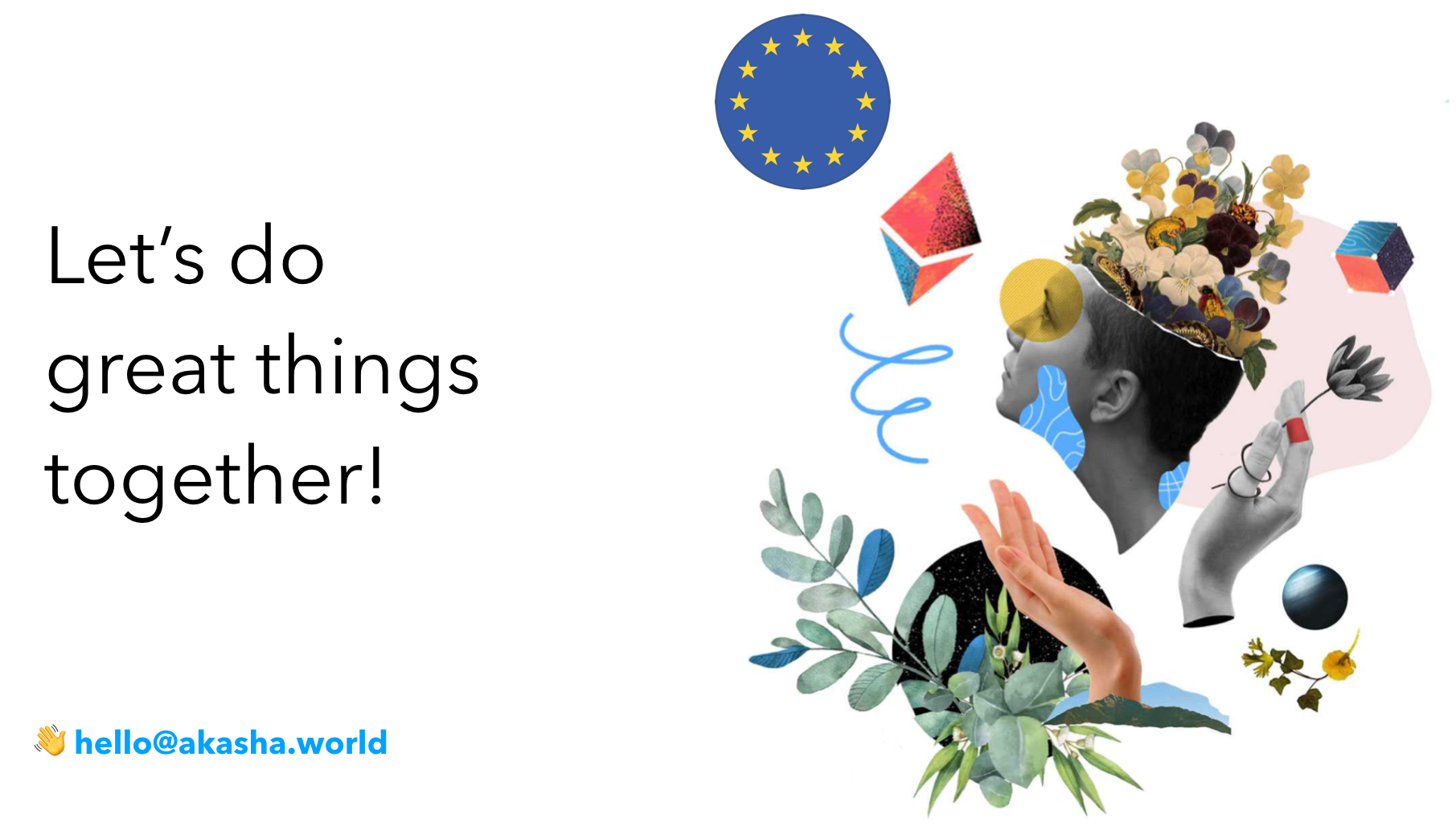Blockchain, e-gov and e-union: presenting at Romania Blockchain Summit
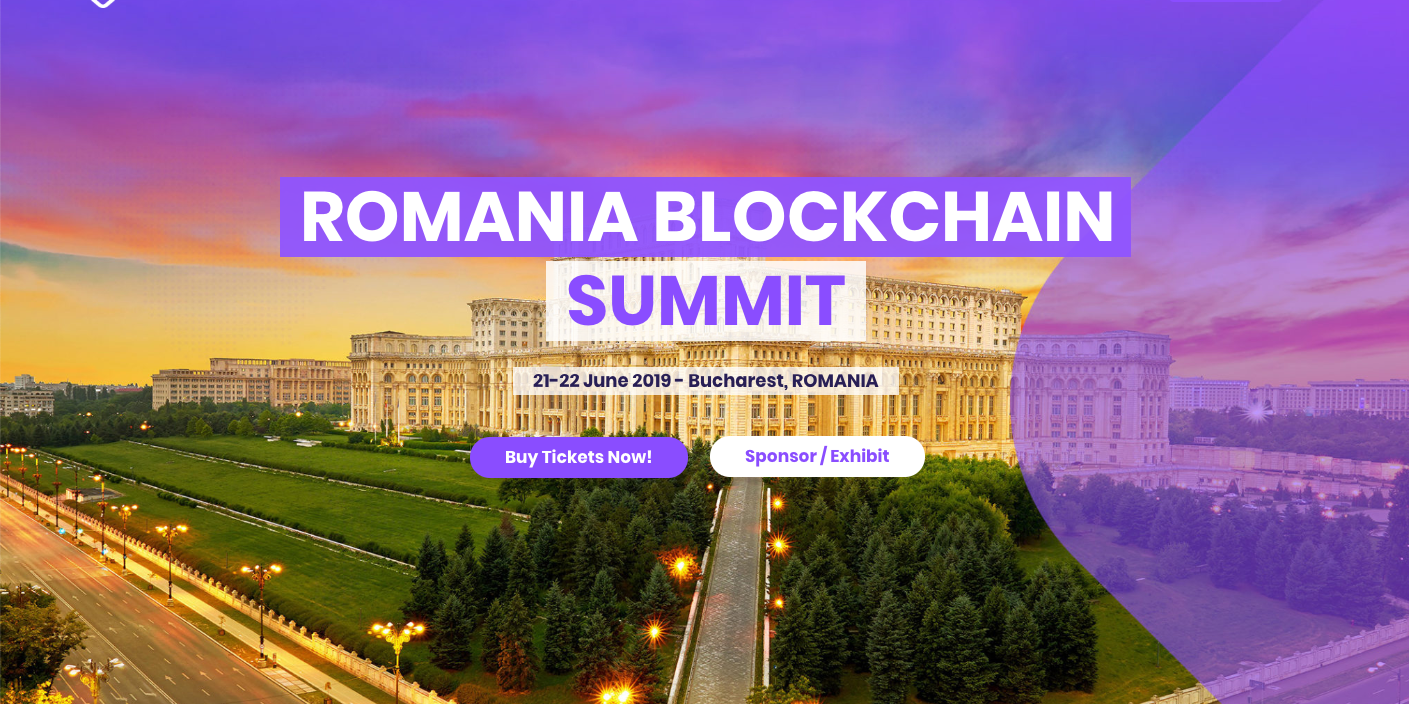
During 21-22 June, a special blockchain event took place in the Palace of the Parliament of Romania, also known as the House of the People, with the official support of the Government of Romania through the Ministry of Communications and Information Society.
For some context, this event took place in the second-largest administrative building in the world (surpassed only by the Pentagon) with a height of 84 metres, a floor area of 365,000 square metres and a volume of 2,550,000 cubic metres. Among other things, it is the heaviest building in the world, weighing about 4,098,500,000 kilograms.
In other words, it's HUUUUUGE and a perfect backdrop for an epic blockchain event.
To make things even more interesting, this event was organized while Romania is holding the Presidency of the European Union. Thanks to my Romanian roots and blockchain involvement over the last eight years, I was invited to be the keynote speaker.
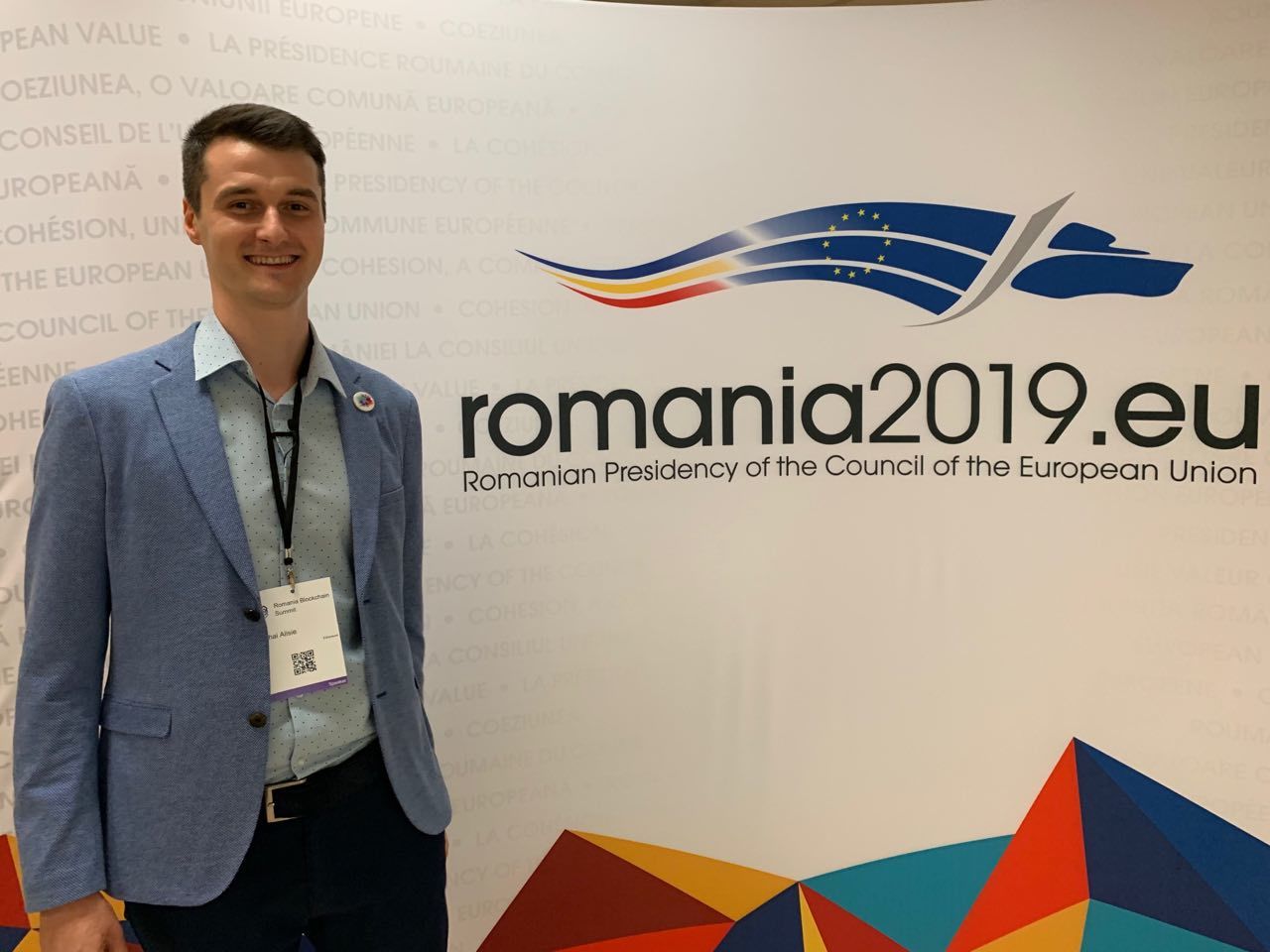
To my knowledge this might be the first event of its kind, signalling an evolution in awareness and understanding from the authorities when it comes to blockchain tech - from passively observing to actively encouraging blockchain projects and opening a dialogue with the "blockchain industry" to create a favorable business environment.
The president of the Romanian Blockchain Association opened with the question "why are we here?" and the Minister of Communication and Information Society continued by sharing his desire to see more blockchain projects setting up their base in Romania.
My keynote followed.
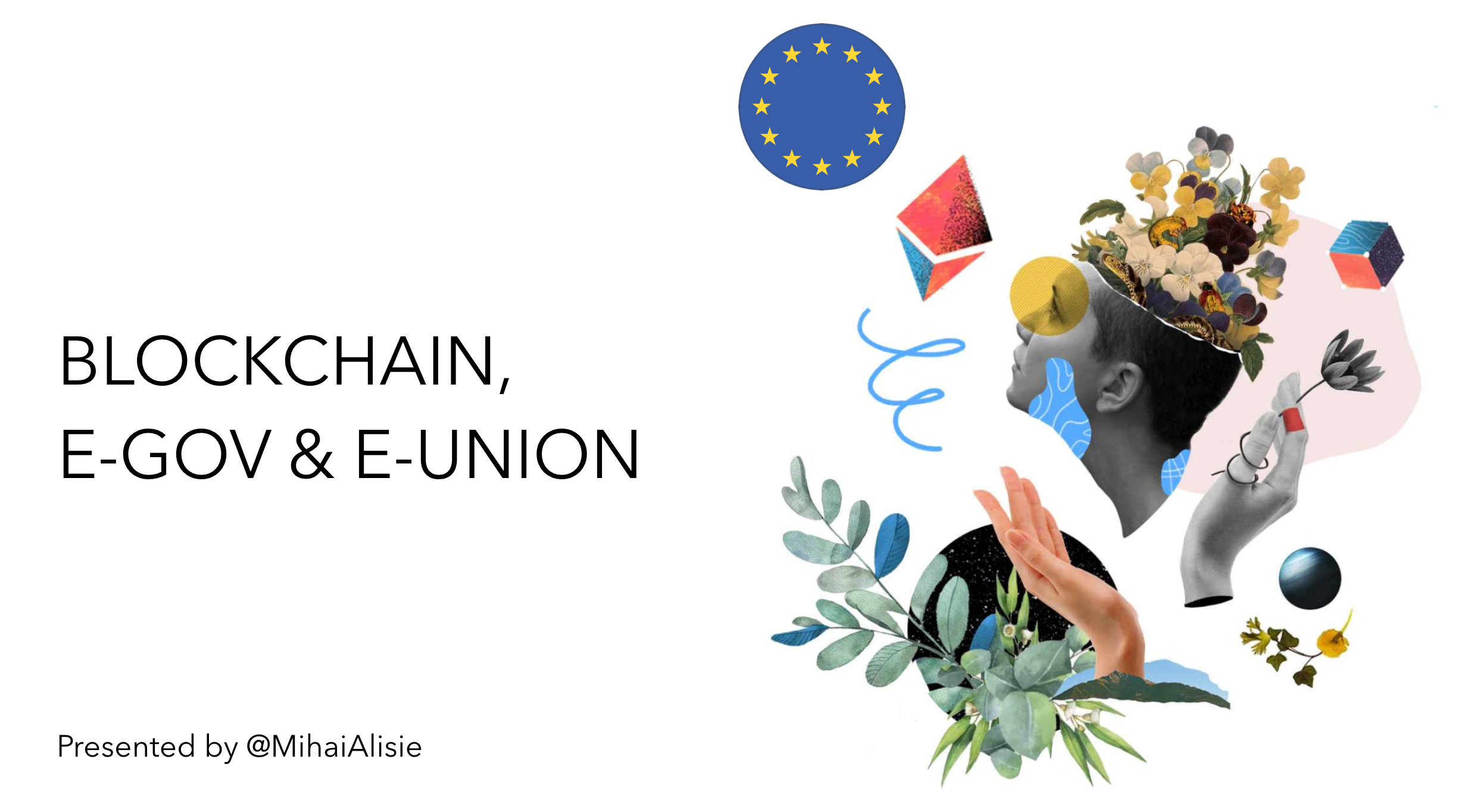
I took this opportunity to share the idea of "smart(er) citizens" and "e-union" building on top of concepts like "e-gov," "crypto valley," and "crypto nation."
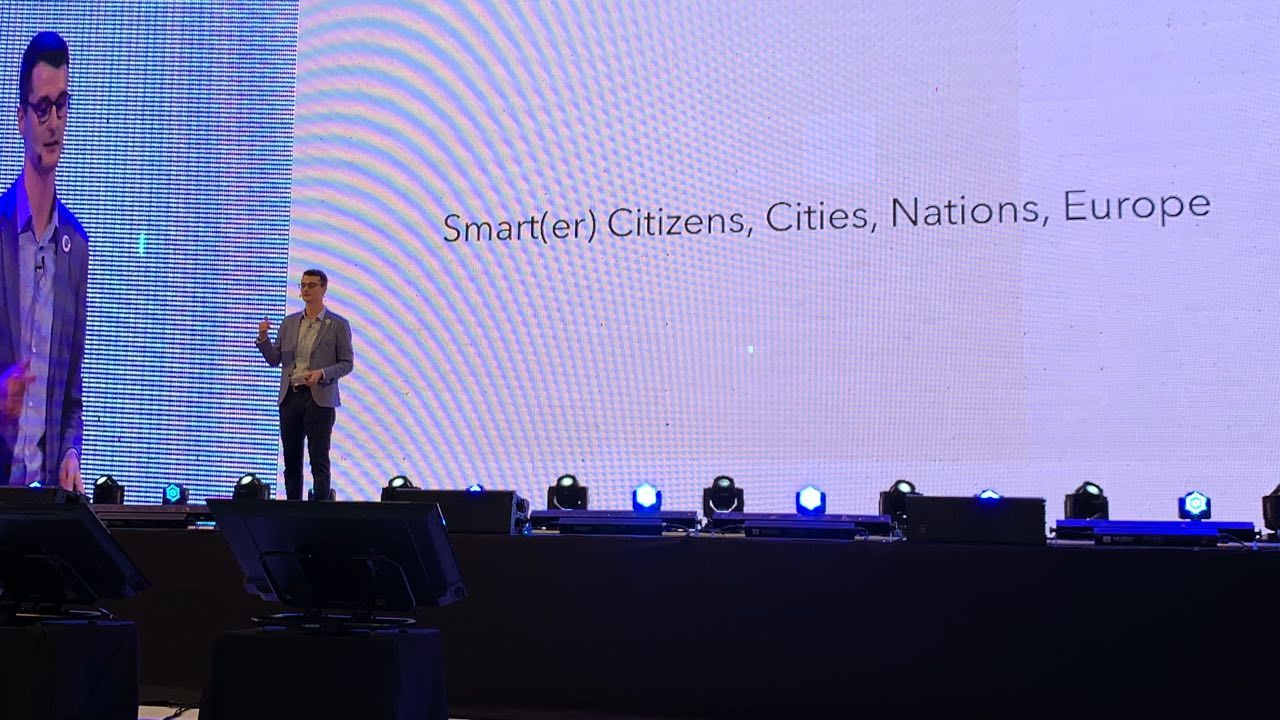
The presentation started by agreeing on a few terms like blockchain, e-gov, and e-union and continued with some lessons learned while setting up Ethereum in Switzerland and sparking the "Crypto Valley" idea.
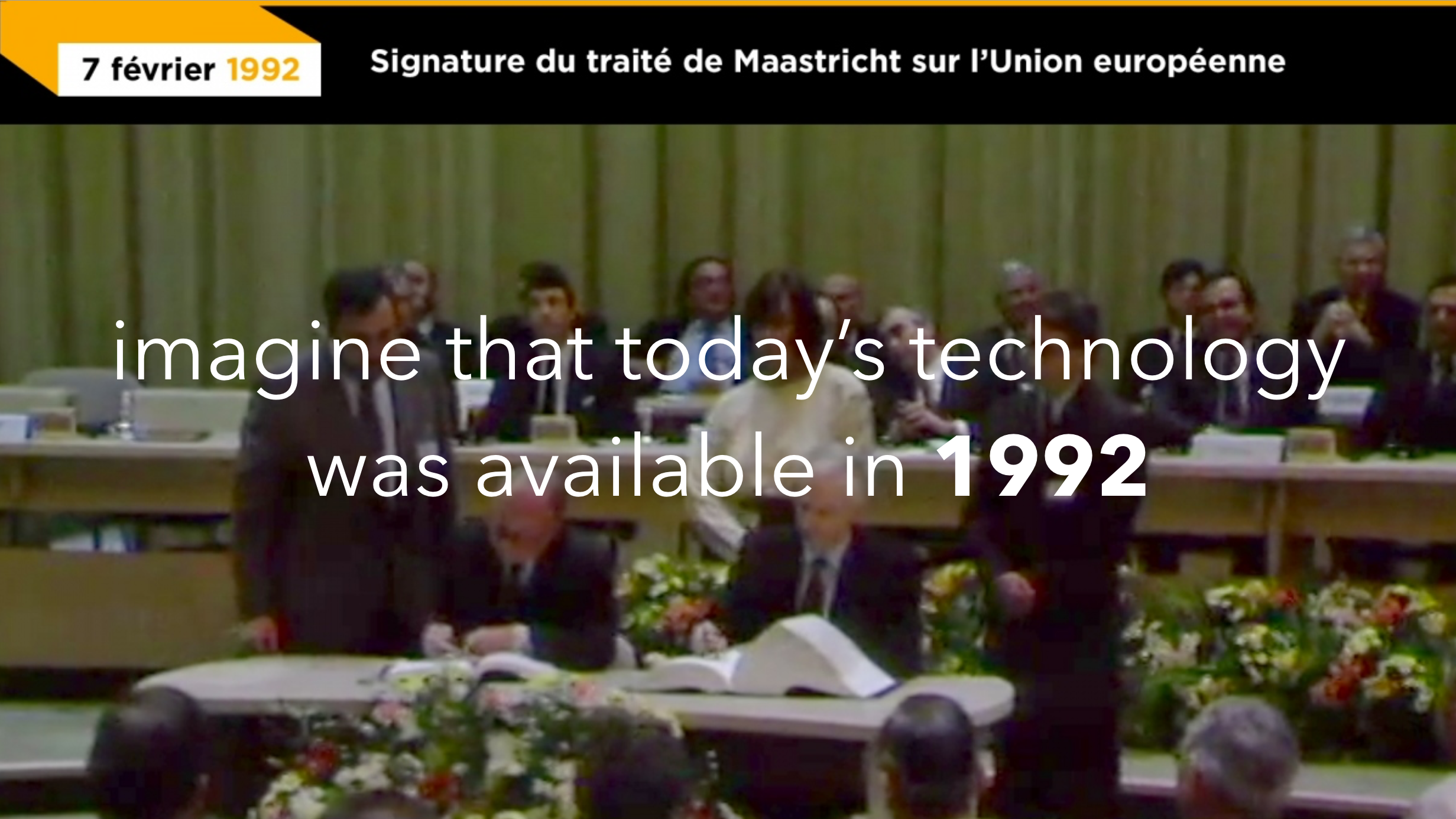
Then I proposed a thought experiment where we traveled back in time to 7 February 1992 when the Maastricht treaty was signed, and the modern European Union formed.
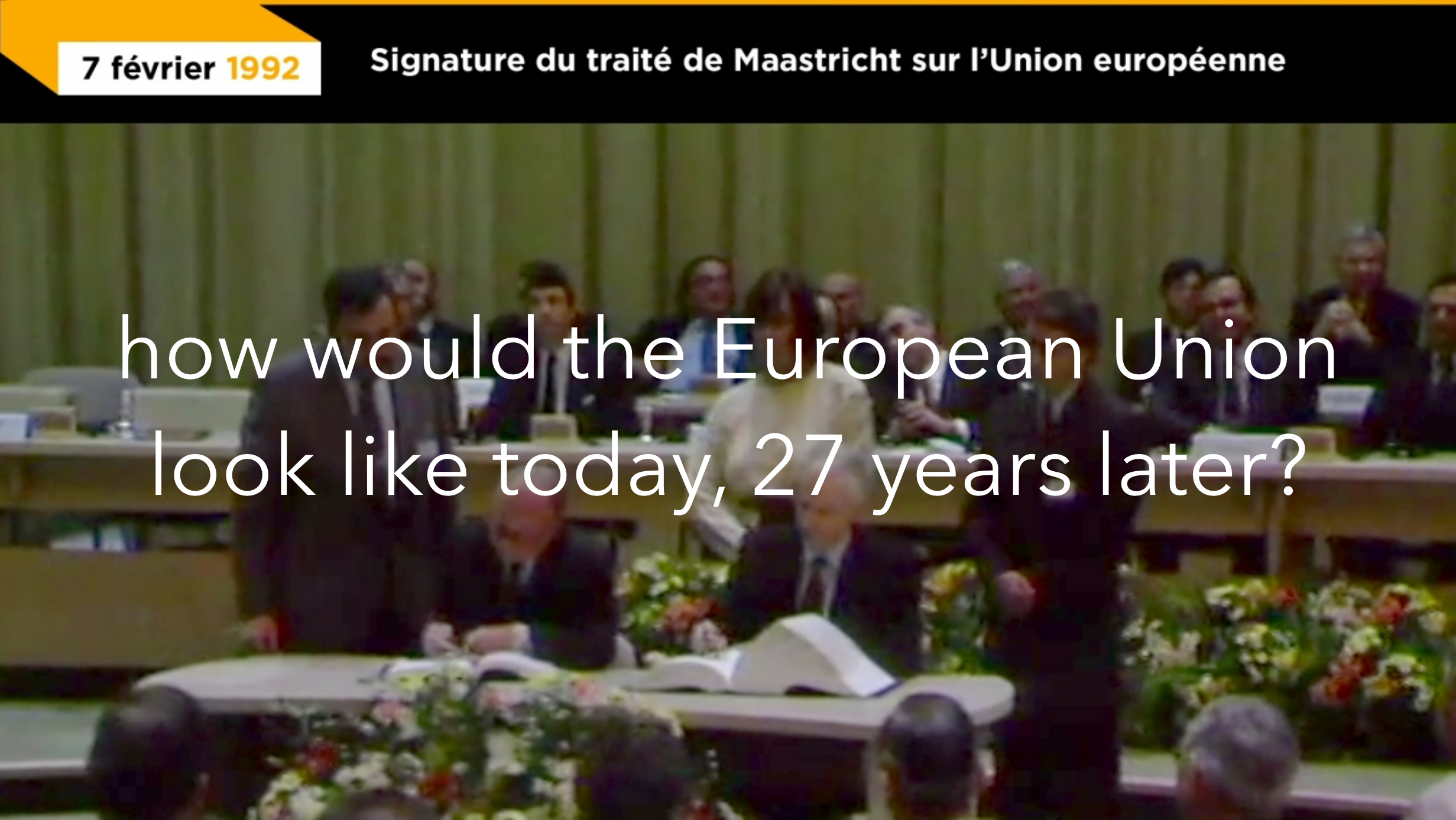
The purpose of the thought experiment was to highlight how many of the things we find ourselves using today as citizens have been envisioned before the Web, smartphones and more recently blockchain, took off.
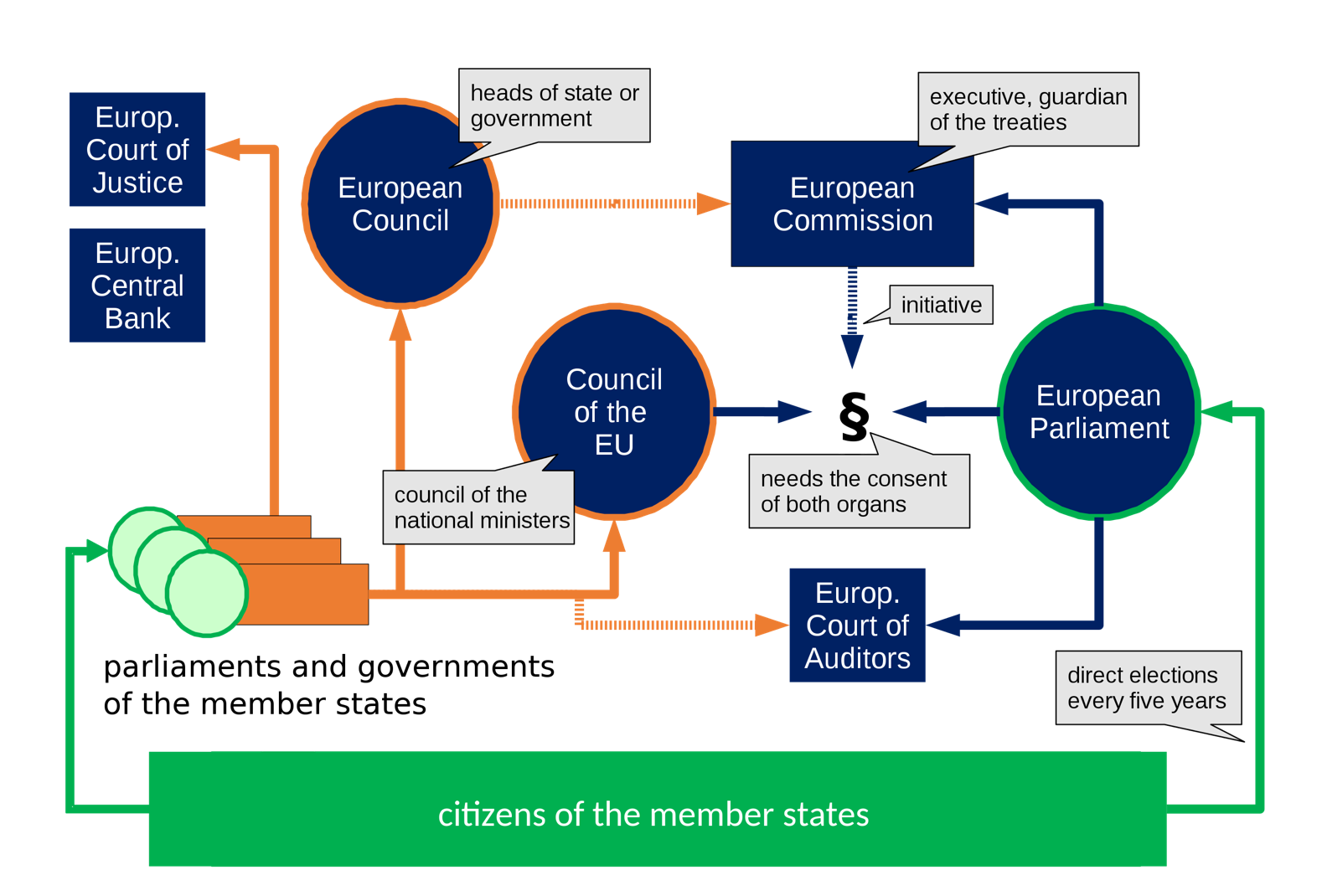
In the diagram highlighting the European Union organs and the processes making the mental construct work, I pointed out how we can "upgrade" the processes and systems with better ones in terms of efficiency, transparency, and cryptographic security.
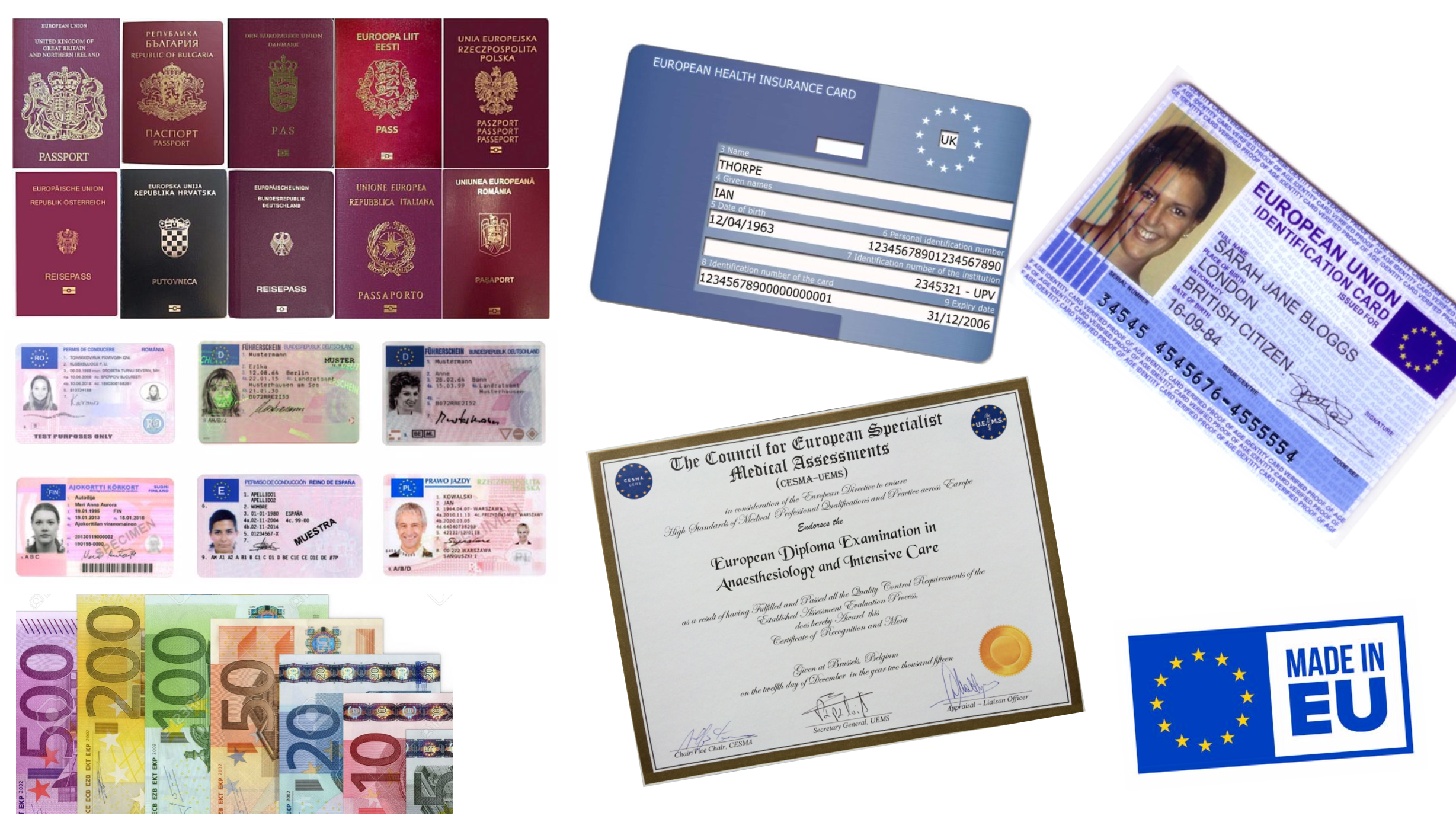
I then touched on how everything from provenance to payments to certification and verification of proofs can be enhanced with cryptographic systems like DIDs, Verifiable Claims, and public blockchains like Ethereum.
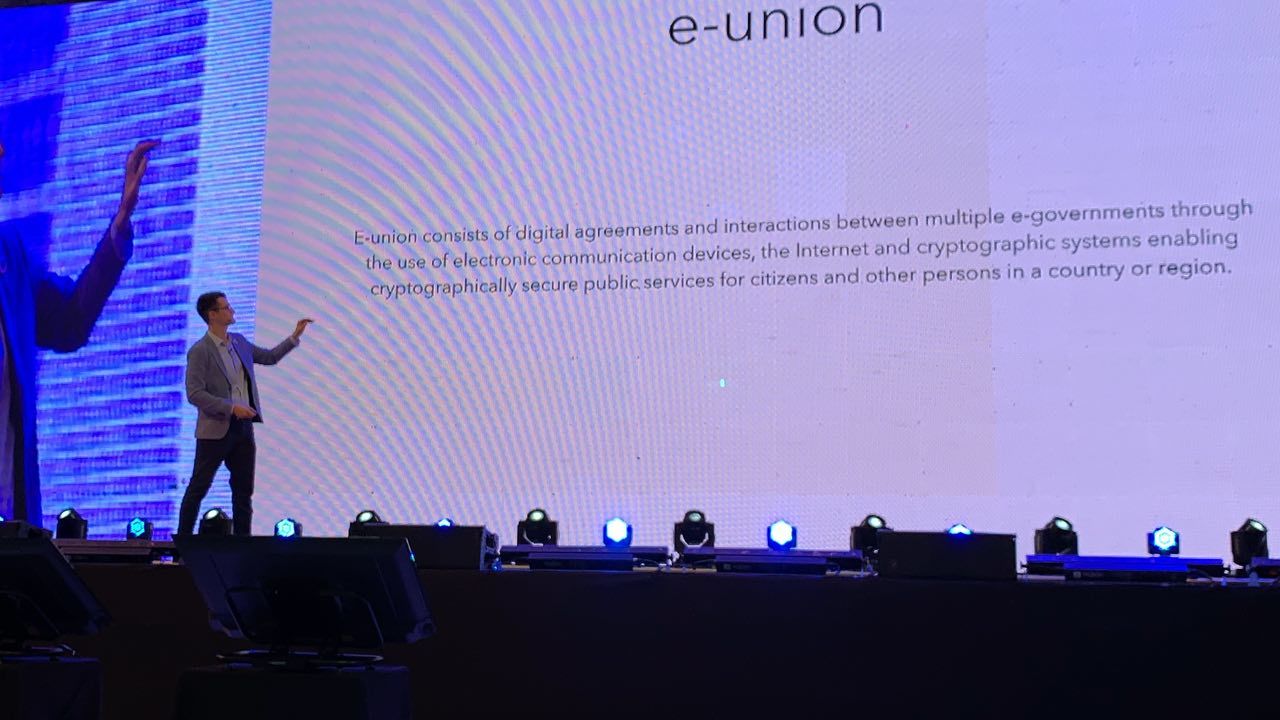
I also focused on the power of standardization and what big difference it can make when looking at the bigger picture: the European Union as a whole.
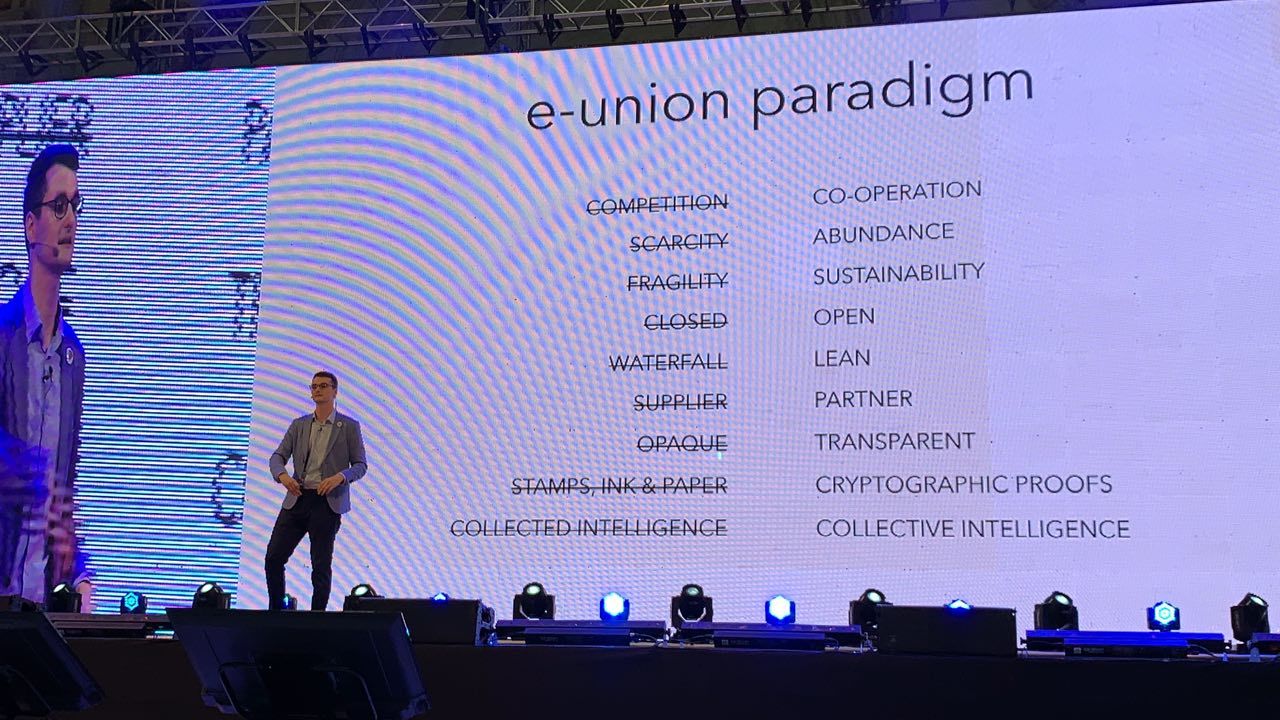
In this paradigm, member states can port the best ideas from across the Union and can each focus on different parts of the challenge without having to duplicate (or triplicate) the work already done by other members.
I also pointed out how the first steps towards the "e-union" paradigm have been made through the European Blockchain Partnership (EBP) agreement signed on 18 April 2018. The agreement was created to cooperate in the establishment of a European Blockchain Services Infrastructure (EBSI) that will support the delivery of cross-border digital public services, with the highest standards of security and privacy.
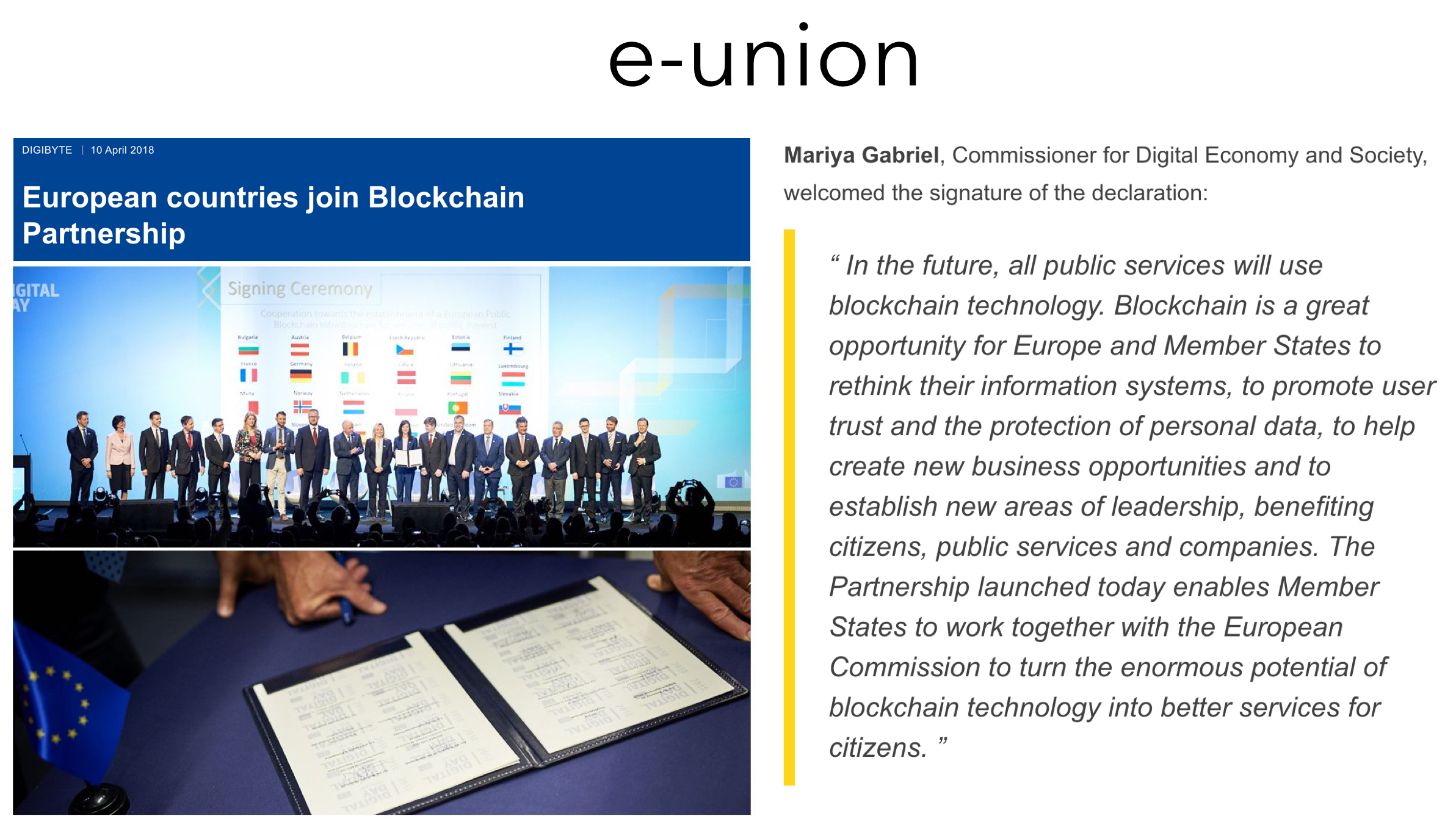
Following this I offered a few examples of projects that are using blockchain for various things from public land registries and commercial registries to the UN World Food Programme using Ethereum to aid Syrian refugees.
In the end of the presentation I wanted to leave the audience with some "actionable ideas" and not just a feeling that "things will change" in the hope that "change" will actually happen because people follow through on some of them.
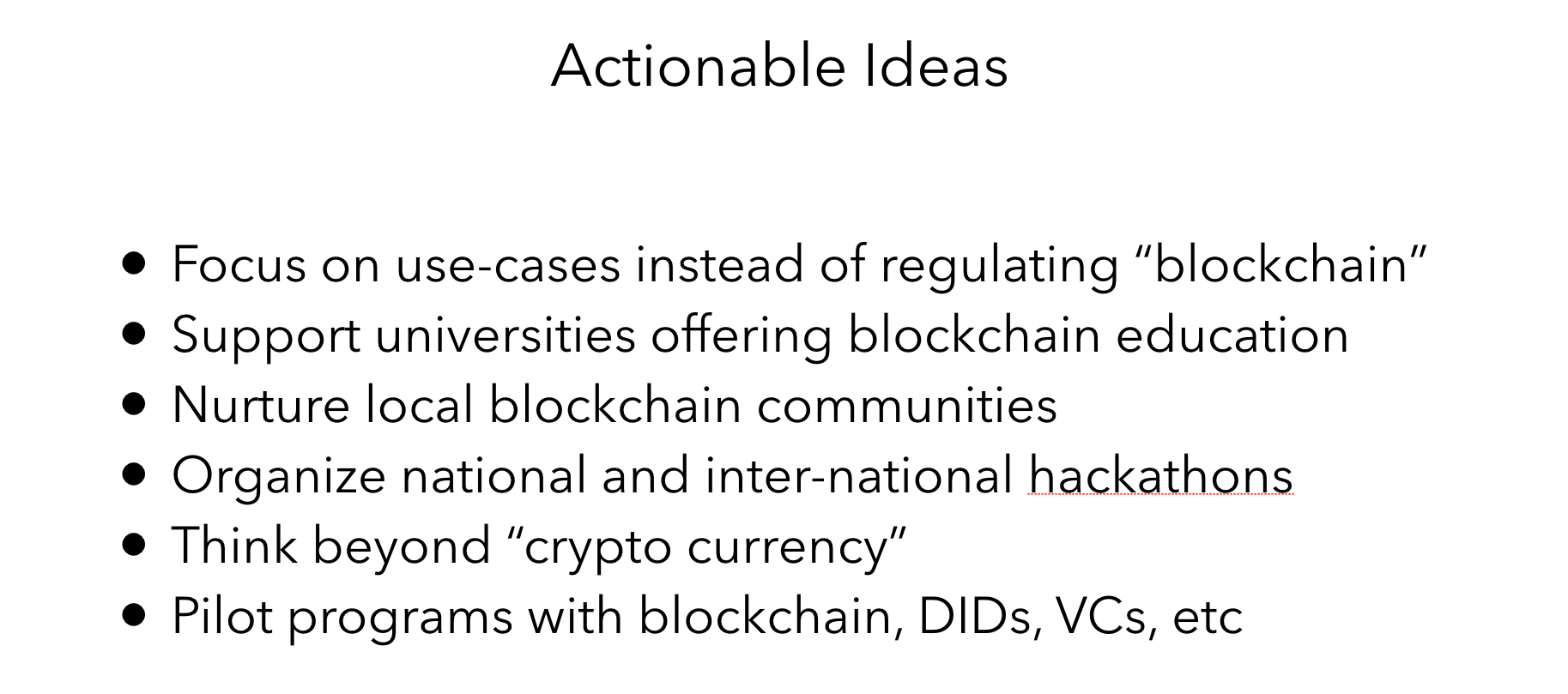
I'm happy to say that the presentation was very well received!
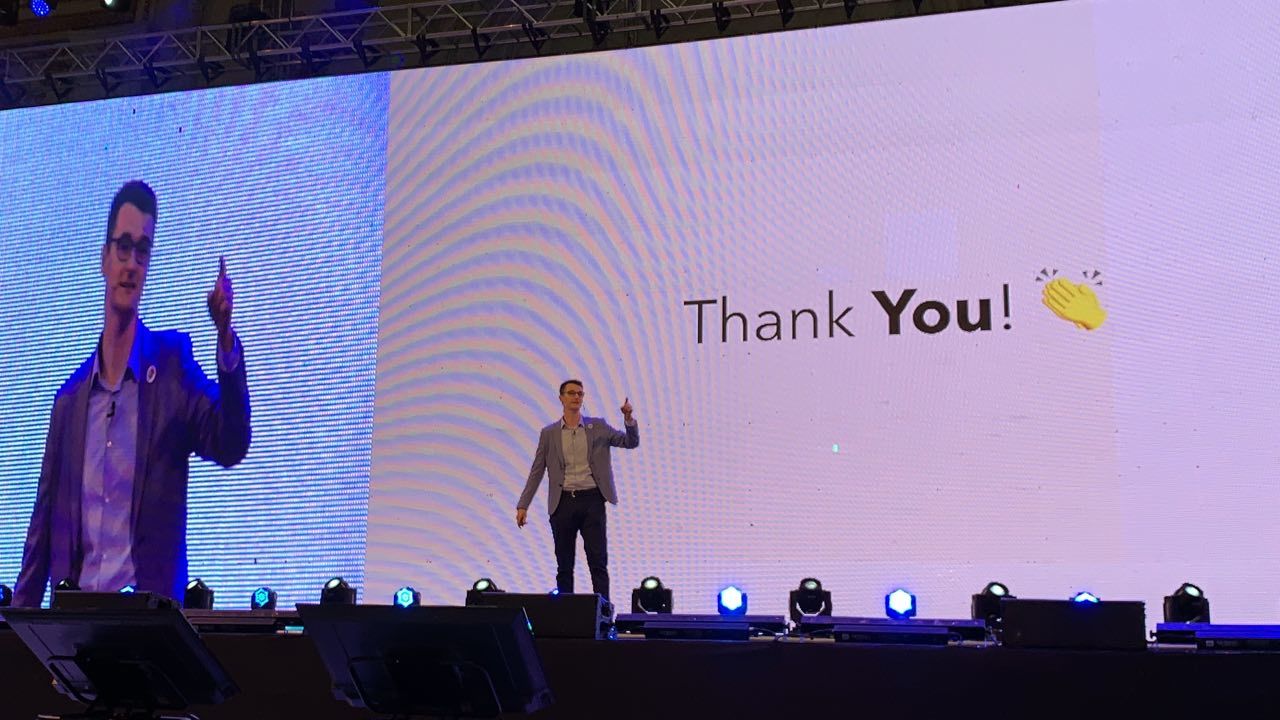
It felt like the people attending saw the opportunity and understood better how everyone from citizens to businesses to public administration can benefit from this new technology. Moreover, based on follow-up conversations, some understood the potential of the bigger idea as well when it comes to e-gov to e-gov interactions framed in my keynote as "e-union".
Following the presentation I participated in a few panels, one of them with the Swiss ambassador at Bucharest, Arthur Mattli, on the topic of public administration. All panels were interesting in their own way, but this one was definitely a highlight.
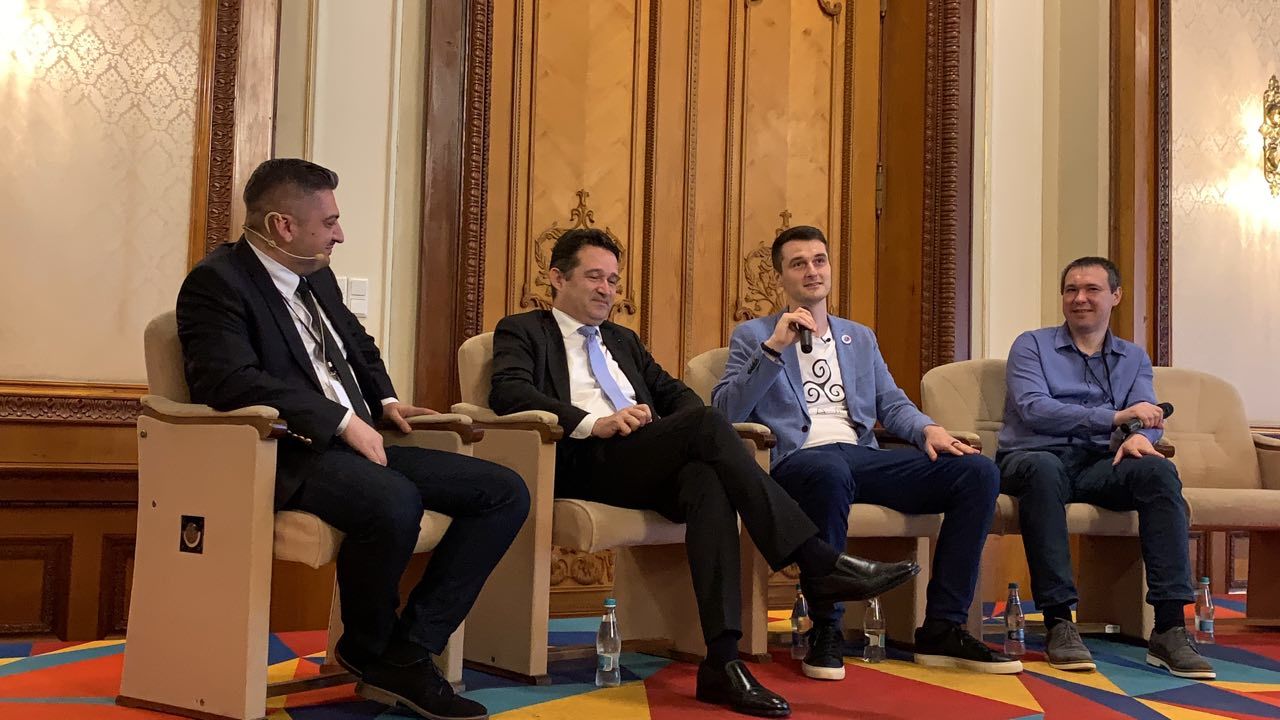
From left to right: Bogdan Almasi, Arthur Mattli, Mihai Alisie, Daniel Roca.
During this panel the Swiss ambassador has shared his insights when it comes to the lessons learned within Switzerland as a result of Ethereum establishing its headquarters in Zug and kickstarting the "Crypto Valley" phenomena.
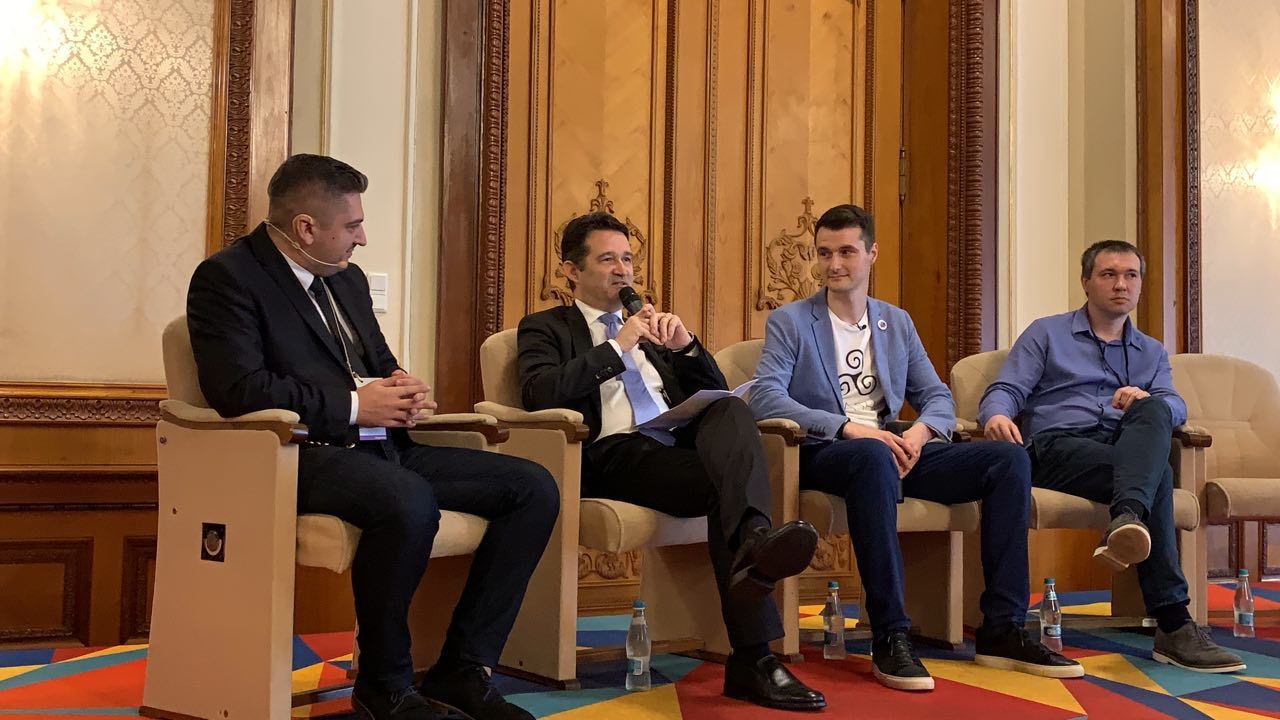
We also touched upon some deeper aspects of our society including the ability for people to self-organize in face of natural disasters and increasing the resiliency of communities of all sizes from small towns to large cities and countries — however, not architected in a top-down fashion but in a decentralized approach empowering people to act intelligently in the face of real-time challenges.
Overall, I feel that this event was a significant step towards a better understanding of the benefits and challenges brought by public blockchains compared to centralized solutions in the context of public administration and e-government!
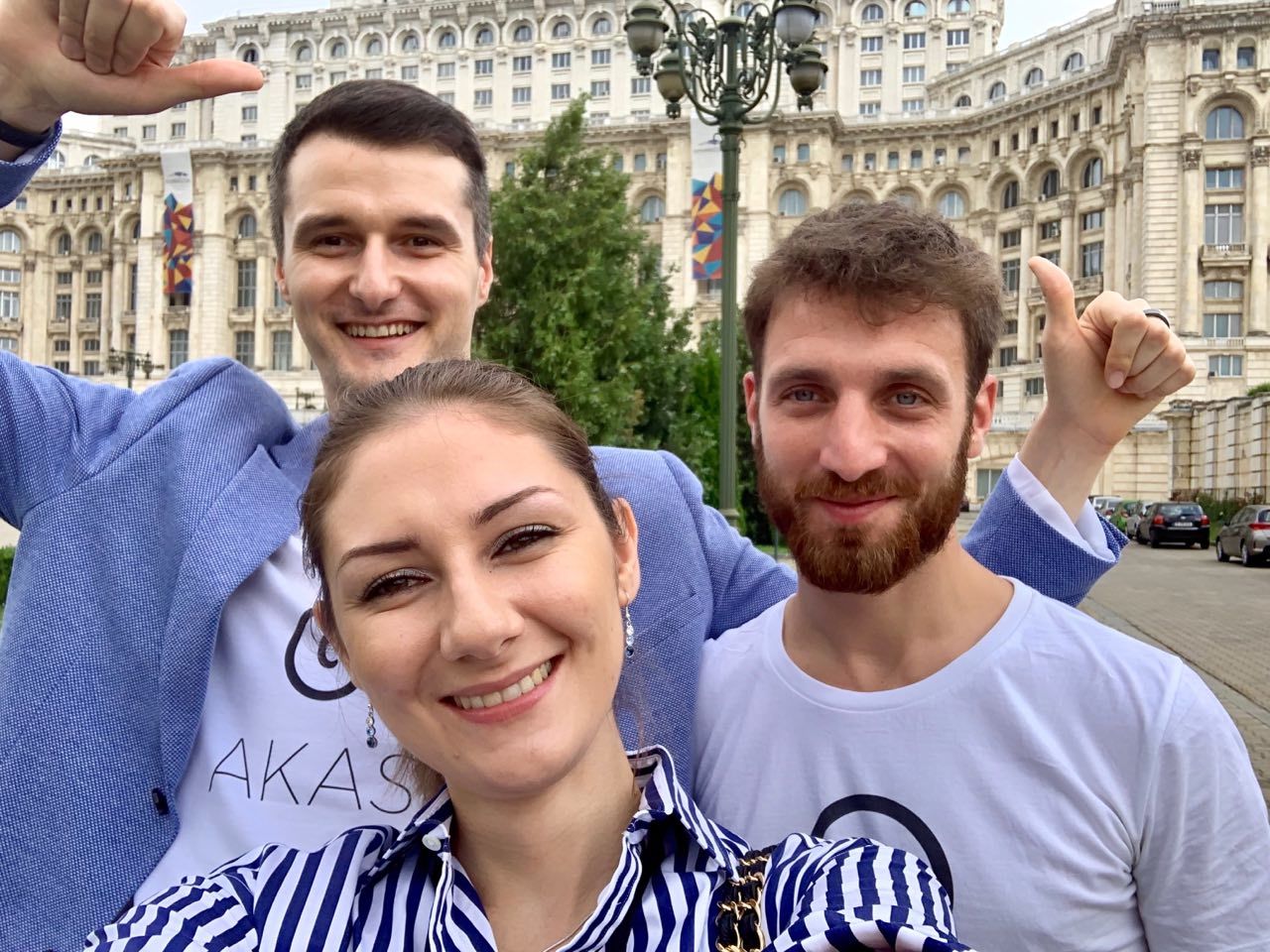
AKASHA, representing! From left to right: Mihai, Roxana, and Lorenzo 🙌
I am looking forward to seeing the first pilot programs with cities (or nations) deploying their own AKASHA social networks to enhance the collective intelligence of their citizens and become, in the process, smart(er) cities powered by smart(er) citizens and smart(er) public administrators working together for the common good!
If this sounds interesting to you or you have an idea for a pilot project for your city, please get in touch with us at [email protected]!
